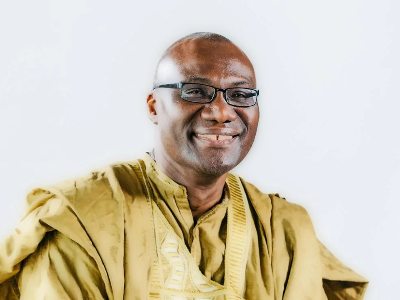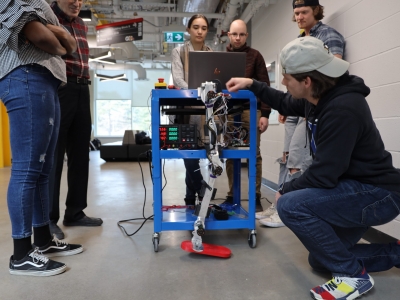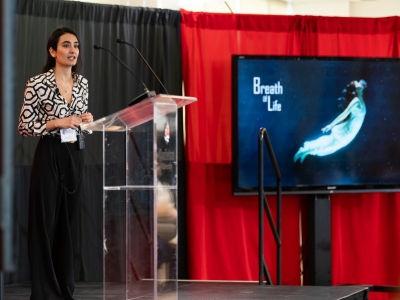
Carleton Civil Engineering graduate Bruce Cane (BEng/93) serves as Manager of the Ontario Ministry of Transportation’s (MTO) Program Planning Office for Central Ontario. Having worked in numerous roles with MTO over a span of more than 20 years, he currently oversees the development and implementation of a $600M+ annual construction program for central Ontario.
We recently had the chance to connect with Bruce to discuss his position with MTO, his experiences at Carleton, and how he has been giving back to his alma matter.
Carleton University – How did you first become interested in engineering?
Bruce Cane – From carving out roads in the sandbox, to constructing LEGO houses and Meccano bridges, I have always been interested in building things. Throughout high school and university, I worked in several lumber yards helping customers plan decks, fences, and other home DIY projects. Having an affinity for math and science made engineering a natural career choice.
CU – What drew you to Carleton’s civil engineering program?
BC – Carleton was my first choice of engineering programs. I was familiar with the university, having been born and raised in the south end of Ottawa and having attended Brookfield High School – just across the Rideau River from the campus. I also knew many friends and neighbours that had attended Carleton and the entrance scholarship I was given was an added bonus.
CU – Can you describe one (or more) fond memories from your time at Carleton?
BC – Perhaps it’s the passage of time, but generally all of my memories of my time at Carleton are fond ones. When I think of my university experience, I mostly remember the people, both classmates and professors, and the shared times that we spent together – from lectures and group projects, to late nights in the computer labs, Rooster’s and Oliver’s, to long conversations about life and future plans.
CU – Tell us a bit about your role in the Program Planning Office at MTO.
BC – In recent years, MTO has adopted a formalized asset management process of operating, maintaining, and expanding the provincial highway network effectively and cost-efficiently throughout its lifecycle. Long term investment plans are developed based on technical asset needs, performance metrics, and funding scenarios. As the Manager of the Program Planning Office for Central Ontario (which includes the Greater Toronto and Hamilton Area, Niagara, and Simcoe County), my role is to oversee the development and implementation of the region’s $600M+ annual construction program for more than 5,500 lane kilometres of highway, 1,500 bridges, and other associated infrastructure.
CU – What are some of the major challenges encountered by the Ministry that are relevant to your position? How is the Ministry working to overcome them?
BC – MTO is currently celebrating its 100th anniversary. That being said, the major period of road building in Ontario was in the late 1950’s and 1960’s. As a result, a substantial portion of the highway network is now reaching the end of its natural service life. The challenge the ministry faces is developing and delivering on a plan to rehabilitate, replace, and expand a substantial portion of the highway network. This is especially acute within the GTA, where highly congested and space-constrained highway corridors place unique limitations on construction. MTO is working with engineers and construction stakeholders to increase industry capacity and to facilitate innovative design and construction practices to help keep Ontario moving while this work takes place.
CU – How have your studies at Carleton helped you prepare for a career in government?
BC – I have built my career upon the solid foundation of both great technical and critical thinking/problem solving skills that I gained at Carleton. That being said, while MTO is a government ministry, it remains a very technically based organization. Upon graduation, I also benefited from extensive training provided through MTO’s 4-year Engineering Development Program.
CU – What inspired your first gift to Carleton and why do you continue to give?
BC – I started giving to Carleton shortly after graduation and I have endeavoured to give annually since that time. My experiences at Carleton were pivotal in my life and have helped shape who I am, both personally and professionally. Contributing to Carleton allows me to give back to the institution that I have benefited so much from attending and it allows me to assist the generation of engineers yet to come.
CU – The legacy gift you have told us about is truly wonderful. Tell us why you have decided to arrange for this gift in your estate plans.
BC – Planning to give to Carleton as part of my estate was a natural extension of my history of annual contributions. While my partner and I have made plans to provide for family and other causes, we felt it important to also make significant contributions to each of our alma maters.
CU – Having hired countless engineers during your career, what key attributes are you looking for? What advice would you offer to new graduates as they enter the workforce?
BC – When hiring engineers, in addition to looking for technical skills, I look for well-developed softer skills – such as good written and oral communication, flexibility/adaptability, project management, and the ability to develop and cultivate relationships with co-workers and stakeholders. The key advice I would provide to new graduates is to learn interview skills. You need to come into an interview prepared to explain the experience and skills you have, how you have actually demonstrated them in the past, and how they link to the position you are applying for. Clear and succinct communication is critical.
Wednesday, September 28, 2016 in News
Share: Twitter, Facebook



